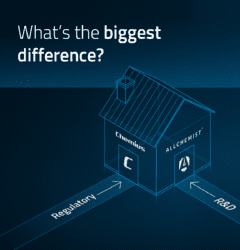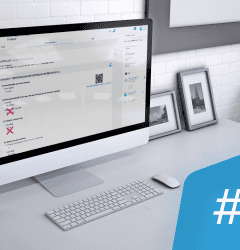23 Oct

There are so many myths in the chemical industry that are stalling innovation. Let me address two of the most critical ones:
- Sharing data will disclose confidential information.
- Safety Data Sheets (SDSs) are confidential documents.
First, let’s tackle the first myth. I agree—to some extent. Sharing some data might expose confidential information, but it’s all about knowing the difference between what’s confidential and what isn’t.
Which brings me to the second myth: Safety Data Sheets are NOT confidential documents. (See REACH regulations and guidance in the comments).
Anyone handling chemicals (except consumers) should receive the SDS with the product. If I order a sample of raw material, the SDS should be part of that transaction. Yet, the information in SDSs and Technical Data Sheets (TDSs) isn’t enough to replicate a product. Why? Because SDSs focus on hazardous substances, not the full recipe or detailed formulation. But this info is absolutely crucial for compliance reasons. Nobody wants to spend time developing formulations in the lab—only to learn at the end of the process that the product isn’t competitive in terms of hazards or fails on compliance grounds.
Sharing essential, non-confidential data upfront saves time and frustration for everyone.
It’s like if a TV manufacturer only provided screen size and resolution upon request. Imagine how few TVs would be sold if customers had to visit the store every time to see a “sample,” but only after telling the seller where they’ll use the TV and what they’ll watch! Sharing essential, non-confidential data upfront saves time and frustration for everyone.
Technical Data Sheets, on the other hand, aren’t mandatory and companies decide what information to include. Naturally, confidential info shouldn’t be part of them.
Now, back to myth #1: Data sharing. Sharing the data from SDSs and TDSs should not be seen as revealing confidential information. It’s data that helps others make informed decisions about your products—whether they are a customer or a potential one.
Why is this so crucial? Because it helps potential customers evaluate your product’s fit before they even order samples, reducing waste and supporting sustainability. After all, isn’t that what we’re all striving for?
If you’re not sharing it, you’re hiding it.
I know, ordering samples is often used as a sales technique to engage potential clients. But the fear of sharing (non-confidential) data is unfounded. If you’re not sharing it, you’re hiding it. And who are you hiding it from? Not your competitors—they likely already have access to your product data through competitive analysis. Remember countertypes? It’s your potential customers who are being left in the dark.
In short: by sharing non-confidential data, you help customers make informed decisions, streamline processes, and improve outcomes in R&D, compliance, health & safety, and even marketing.
Here’s the twist: you don’t have to make all this information public. In Chemius, you control what data you share and with whom. Your customers can then directly use this data to draft formulations and evaluate products—without ever compromising confidentiality. This way, you maintain control over your data, help your customers work more efficiently, and, yes, contribute to sustainability.xt steps, please feel free to email us at info@bens-consulting.eu.we will get back to you as soon as possible.
Ready to turn compliance into your competitive advantage?
Book a meeting with our experts to discover how Chemius can streamline your processes, enhance customer value, and give you a real edge over the competition.



Bojan Buinac